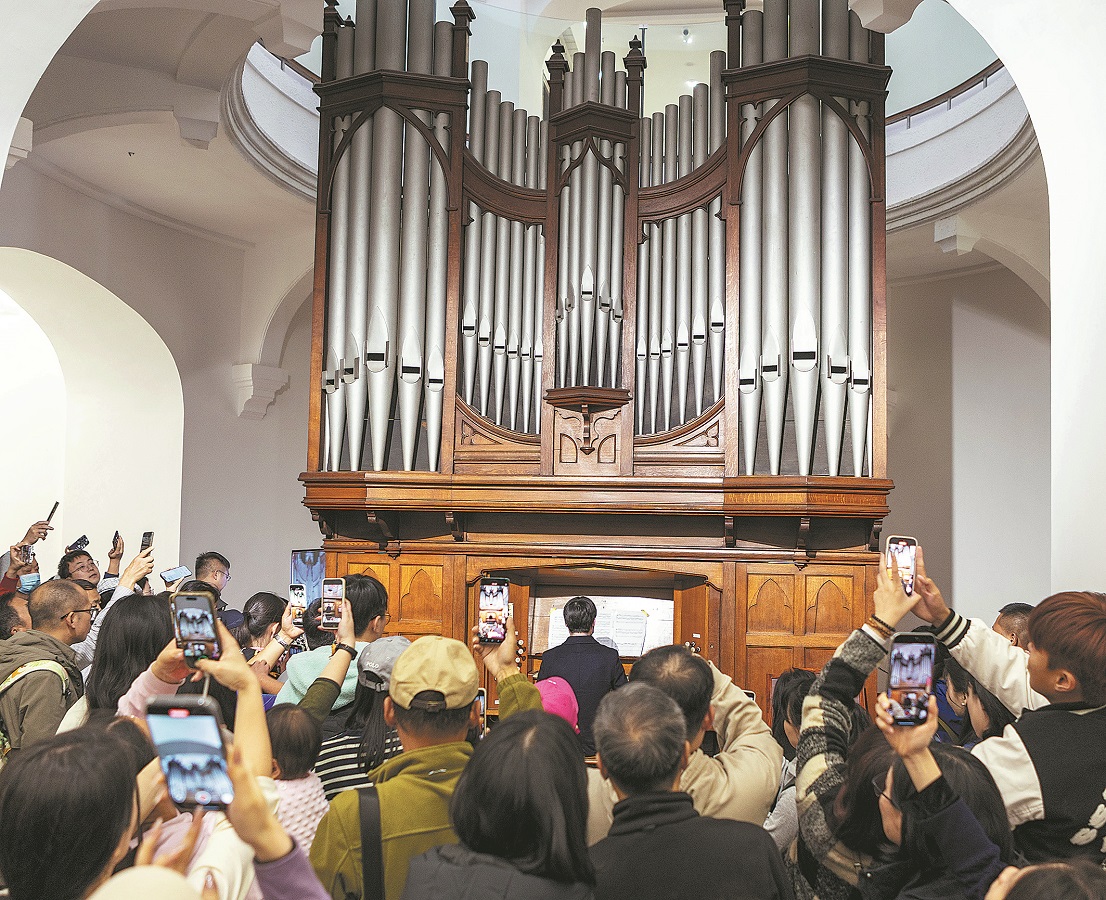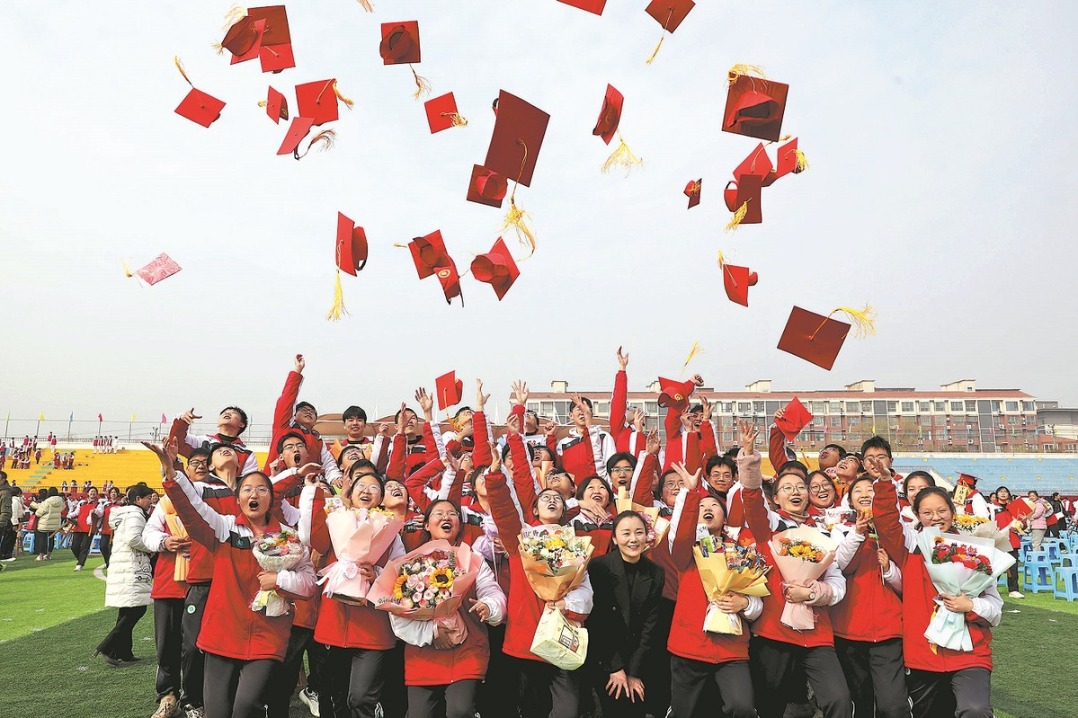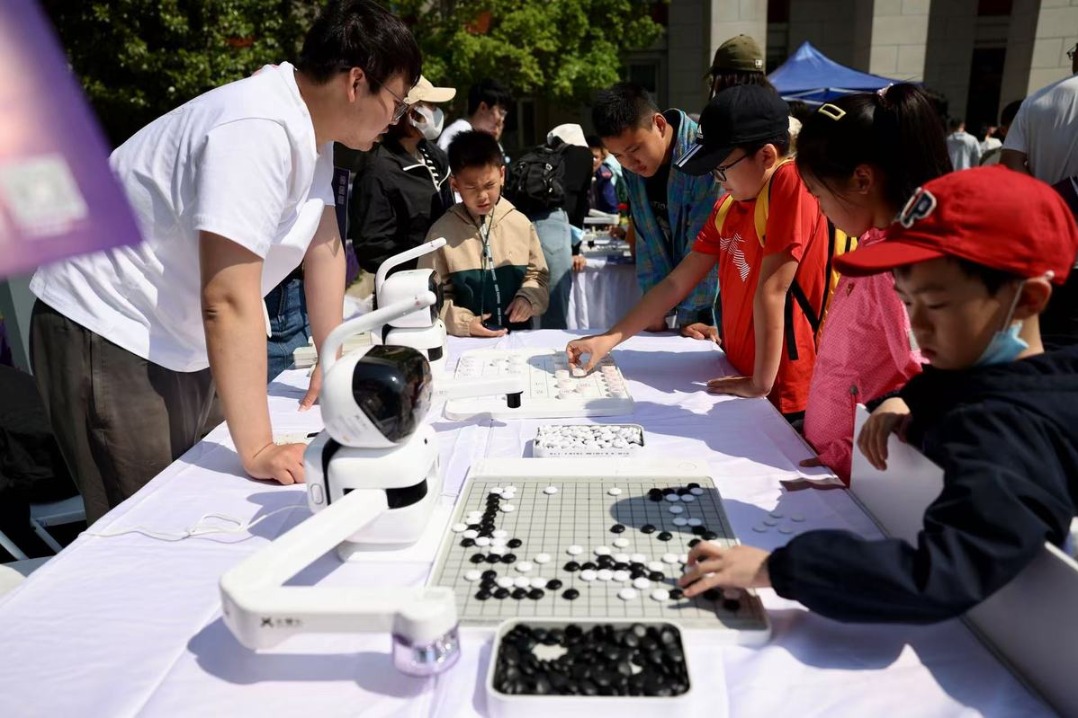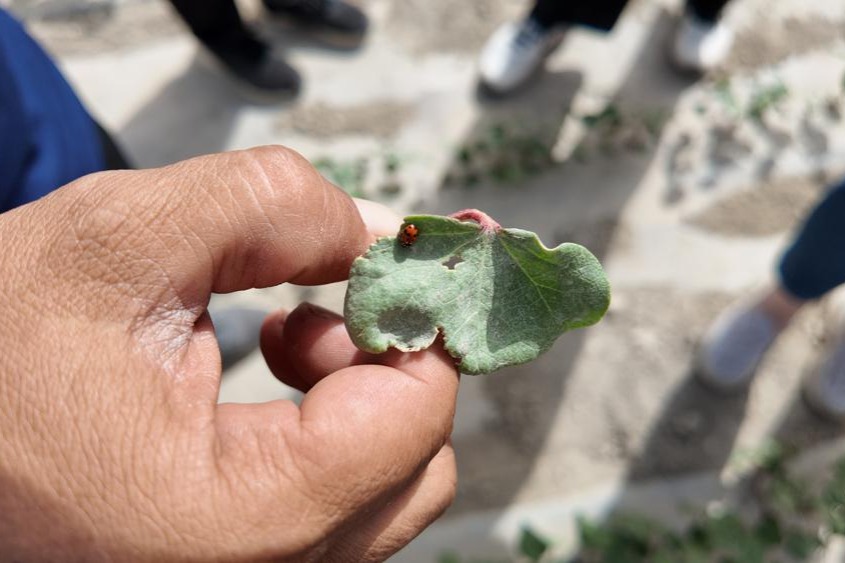Preservation of Gulangyu sets high mark
Safeguarding vibrant island's cultural heritage has long been Xi's priority


At the heart of the island of Gulangyu's Bagua Mansion, Ian Wakeley, a pipe organ engineer from Australia, leans over a sprawling theater organ, his hands moving with precision as he and his team work to assemble the intricate musical instrument.
Every piece, every detail, is meticulously placed as the organ takes shape — one of the 70 organs housed in the famed pipe organ museum on the island, which is located off the coast of Xiamen, a city in southeastern China's Fujian province.
For the past two decades, Wakeley has been installing and repairing organs in locations across the island, each one adding to Gulangyu's reputation as a haven for music and history.
The island, also known as Kulangsu in the local dialect, has been widely acclaimed as a living monument to the fusion of Western grandeur and Chinese heritage.
"For me, this isn't just about restoring an instrument," Wakeley said. "It's about preserving a legacy.
"I look back after 20 years since the first organ went in, and it makes me very happy to be part of that history on the island. The island's history is a fusion of the East meeting the West. It has always had a special feel — the architecture, the buildings, the people. It's all very welcoming."
Wakeley's dedication to the preservation of Gulangyu's musical legacy is part of a broader, sustained effort to protect the island's rich historical fabric. This effort, which began decades ago, has been championed by many individuals, but no one has been as instrumental as Xi Jinping, who, as Xiamen's vicemayor in the 1980s, set the course for the island's preservation.
In the 1980s, when Bagua Mansion, a cornerstone of Gulangyu's appeal, was in a state of disrepair, and the city was looking to refurbish the red-domed building and turn it into a city museum, Xi earmarked a special fund of 300,000 yuan ($41,600) to support its renovation efforts.
Xi's leadership was instrumental in the creation of the 1985-2000 Xiamen socioeconomic development strategy, which highlighted the importance of Gulangyu as a "national treasure".
The plan, which dedicated a special chapter to Gulangyu, called for careful preservation of both the island's natural beauty and its cultural heritage.
Xu Jinmin, an official with the Administrative Committee of the Xiamen Gulangyu-Wanshishan Scenic Area, said the strategy, compiled by a team led by Xi, elevated the importance of the island to an unprecedented height and paved the way for its wide-ranging preservation efforts.
"The strategy set the tone for the preservation and development of Gulangyu over the following decades," he noted.
Another important measure taken during Xi's tenure in Xiamen was the island's recognition by the State Council, China's Cabinet, as a National Scenic Area in 1988, paving the way for its enhanced conservation.
The island's inscription as a UNESCO World Heritage Site in 2017 was the culmination of years of work, much of it set in motion by Xi's vision for the site.
Following the UNESCO recognition, President Xi, who is also general secretary of the Communist Party of China Central Committee, again stressed the need to carefully safeguard the cultural heritage left by ancestors and better carry forward the nation's historical legacy.
"The application for UNESCO World Heritage status is aimed at better protection and utilization. It is essential to summarize successful experiences, draw on international concepts, and improve long-term mechanisms," he said.
Wakeley, who has made more than 30 trips to the island, praised Xi's unwavering commitment to the preservation of Gulangyu and its cultural treasures.
"For the leadership to say this is important, and (that) we must preserve and protect cultural heritage — that's very important, not just in China, but for any country," he said.
Cai Wanxia, an analyst at the Fujian Academy of Social Sciences, noted that the preservation of Gulangyu exemplifies Xi's dedication to protecting national cultural treasures. "It also serves as a vivid embodiment of his thoughts on cultural heritage protection," she said.
"Walking into Gulangyu, while we appreciate its precious historical and cultural heritage, we can also genuinely feel the vibrant atmosphere of this historic international settlement," Cai said. "This fully demonstrates the foresight and long-term vision of President Xi in protecting cultural heritage."
UNESCO describes Gulangyu as "an exceptional example of the cultural fusion" resulting from Sino-foreign exchanges that began when the island first became an international settlement in 1903.
Gulangyu stands out for its vibrant colors, particularly the striking contrast between the red hue of the brick buildings and the lush surrounding greenery.
"The vivid red against the greenery creates a visually stunning effect, making the island's landscape particularly distinctive," said Shi Jianguang, a professor at Xiamen University's School of Architecture and Civil Engineering.
Shi led a team of experts that oversaw the restoration of Bagua Mansion, the third renovation in its 117-year history — a project that started in July 2021 and was completed in February 2024.
He credited Xi's leadership for preserving the island's original architecture, especially Bagua Mansion.
"His strong support helped ensure that the island's streetscapes, buildings and overall aesthetic remained true to their original form," Shi said.
The restoration of key buildings on Gulangyu, including Bagua Mansion, has been carried out in a way that remained faithful to the original style and characteristics, he added.
For architects, the restoration of the landmark buildings was like "dancing with shackles on", as they made every effort to ensure authenticity, reversibility and minimal intervention during the restoration process, Shi said.
"As a result, when you walk through Gulangyu today, you encounter the same sights and atmosphere as in the past, with no significant changes from what they were decades ago."
Modern monitoring technology has also played a key role in Gulangyu's preservation.
Cai Songrong, director of the Gulangyu Cultural Heritage Monitoring Center, said the technology allows for real-time monitoring of the island's buildings. "A key feature of the system is its ability to use the internet to control the frequency of patrols," he said. "We conduct inspections twice a day, ensuring that any changes are caught quickly."
In 2024, the island received 9.22 million visits by tourists, who took an eight-minute ferry ride from downtown Xiamen to explore Gulangyu's beaches, winding lanes and rich architecture.
Scot Harrison, an Australian visitor, said he fell in love with Gulangyu on his first trip to Xiamen.
Gulangyu's charm lies in its seamless blend of old and new, he said. "In Gulangyu, the historic buildings are not only appreciated, but also beautifully preserved and presented," he said.
With sound preservation efforts now put in place, officials have also stressed the need to ensure that the communities on the island, which is also known as Piano Island because it features a large piano museum, can continue to thrive.
Xu, the official with the scenic area's Administrative Committee, said measures are being taken to prevent the permanent residential population from declining, including improving education and healthcare access for residents.
"If there are no residents left on Piano Island, who will play the piano in the future?" he asked.
Xu highlighted innovative solutions such as drone delivery of medicine to elderly residents and the establishment of community cafeterias and express delivery stations to improve quality of life on the island.
"Without these people, the cultural traditions of this place cannot be passed down," he said. "Only when people stay in the community does the cultural heritage remain alive."
Contact the writers at xuwei@chinadaily.com.cn

- Scientists reveal accelerating decline in global forest recovery after major wildfires
- China activates Level-IV emergency response to flooding
- Call for Entries: International Cartoon and Illustration Exhibition 2025
- 2 dead, 1 missing after rain-triggered landslide in South China
- Xi stresses high-quality compilation of 15th Five-Year Plan
- Sanxingdui-themed train links ancient culture, natural wonder in SW China's Sichuan





































